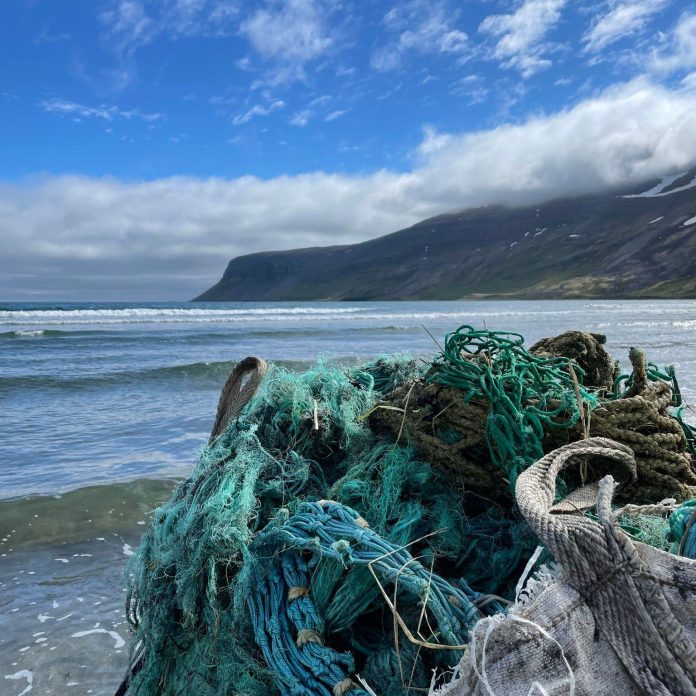28 volunteers of an Icelandic NGO dedicated to coastal clean-up headed towards Hornstrandir, a remote and isolated part of north-western Iceland only accessible by the often turbulent north Atlantic Ocean.

At the same time, at the end of June, further south and east on the shores of the same Atlantic Ocean, international diplomats were getting ready to debate the future of the seas at the UN Ocean Conference in Lisbon.
The volunteers disembarked from the Icelandic Coast Guard ship and after hours of hiking reached the small bay of Furufjörður. Although they had cleaned it of plastic and fishing gear only six years ago, there was work to be done.
Hornstrandir is the living proof that not even unpopulated parts of the world are exempt from human pollution. The area has been uninhabited for half a century.
Plastic replaces driftwood

For centuries driftwood was abundant in the area and important for the population, given the virtual absence of woods in Iceland. The driftwood was of Siberian origin and brought westwards by ocean currents. As forest management techniques improved in Russia the volume of driftwood decreased, but that didn´t mean that nothing turned up on the shores of Hornstrandir.
A coast guard boat loomed on the middle of the bay, as the volunteers toiled and had to use considerable force to loosen plastic fishing nets from the black sand. The debris was then transported little by little on rubber boats to the ship.
At the end of the weekend more than five tons of rubbish had been cleaned off the beach.
“This was quite successful, we were quite lucky. The group was good and the weather was decent. We collected roughly the same volume of garbage as the last time, six years ago, although we covered a little larger area this time”, Gauti Geirsson the spokesman of the group said.
“This means that we now have collected 10 tons of plastic in this little bay.”
Region of birds and foxes

Thor, the coast guard ship transported the collected debris to the town of Ísafjörður. “It was mostly plastic and fishing nets,” the Coast guard said on its Facebook page.
No human settlement has been in the Hornstrandir region since the mid-20th century. The area has been abandoned to tens of thousands of birds and the last remaining fox population of Iceland. Since 1975 it has been a protected area for foxes, much hated by sheep farmers in other parts of the country.






